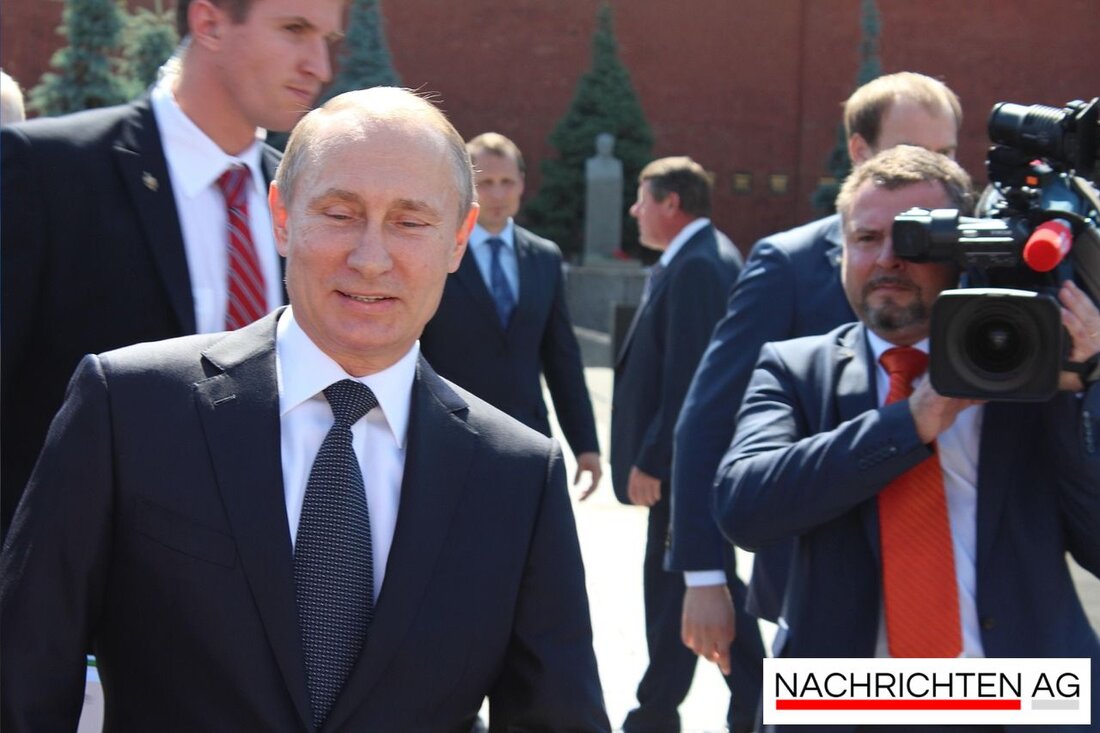Trump and Putin united: Iran must not have nuclear weapons!
Trump and Putin united: Iran must not have nuclear weapons!
In the midst of persistent tensions and intensive negotiations, the conversations between the United States and Iran are in full swing on the controversial Iranian nuclear program. US President Donald Trump emphasized that in a conversation with Russian President Vladimir Putin, he made clear demands on Tehran. Trump sees Putin as an important partner in the negotiations and has explained that Iran should not have nuclear weapons. Putin was ready to help with the clarification of the situation and indicated that he wanted to take part in the conversations.
But the hopes of a quick agreement are slowed down by the rejection of the Iranian top guide, Ajatollah Ali Chamenei. The latter said that Iran would not accept the US claim after an uranium enrichment stopped. Chamenei emphasized that the enrichment for nuclear technology is crucial and that Iranian independence and scientific potential must be preserved. The conflict of uranium enrichment remains the central point of dispute in the negotiations between the two countries.
background of the negotiations
The conversations between the USA and Iran are mediated by Oman. Iran has long been under pressure from the USA, Israel and other western countries that want to prevent nuclear weapons from developing by Tehran. The US “maximum pressure” campaign, which has been revived since January 2025, also increases Iran, and has led to stricter sanctions. These accelerated the already tense economic situation in the country.
Since the unilateral withdrawal of the United States from the nuclear agreement with Iran in 2018, Iran has rapidly expanded its nuclear program. The country currently enriches uranium to up to 60%, which contradicts the provisions of the common comprehensive action plan (JCPOA). The International Atomic Energy Agency (IAEO) estimates that Iran now has 7,464 kg enriched uranium, which is almost 25 times more than allowed. It is emphasized that Iran is considered the only non-atomic weapon state that produces nuclear material to such a scope.
In addition to uranium enrichment, Iran has also significantly restricted the control options of the nuclear agreement and suspended the additional protocol to the nuclear weapon locking contract. These measures lead to increasing concern within the European Union, which Iran sees as a serious security threat and strives for urgent political solutions. The time pressure continues to increase because the UN Resolution, which binding the 2015 nuclear agreement, expires in October 2025.criticism and perspectives
Ajatollah Chamenei sharply criticized US politics during the negotiations and questioned the American government's authority. At the same time, he confirmed that an independent uranium enrichment for Iran remains non -negotiable. This position is supported by the Iranian Foreign Minister Abbas Araghtschi, who described the US considerations as changeable. The situation continues to be complicated by the military considerations of Israel, which sees an existential threat in an Iranian nuclear weapons program.
The current negotiations are a crucial moment because they have the potential to decisively influence the nuclear future of Iran and the safety of the entire Middle East. The persistent refusal of Iran to respond to the United States' demands, however, raises doubts as to whether an agreement can be reached in the near future. The international actors, including the E3 (Germany, France, Great Britain), have to work closely with the United States to find a solution that could stabilize the region and at the same time exclude the risk of a nuclear weapon program in Iran.
bnn.de reports that ...
tagesschau.de informs about ...
swp-berlin.org explained ...
| Details | |
|---|---|
| Ort | Teheran, Iran |
| Quellen | |


Kommentare (0)